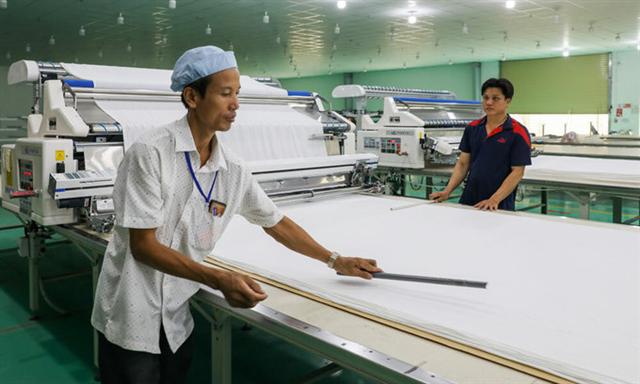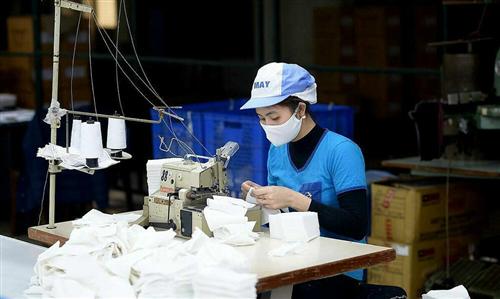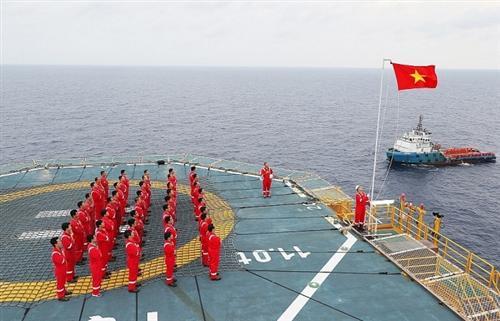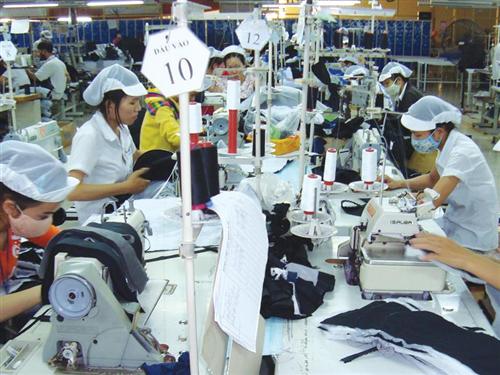Textile industry suffers as EU, US buyers cancel orders
Textile industry suffers as EU, US buyers cancel orders
Vietnam garment makers are struggling as EU and US buyers cancel orders over the Covid-19 crisis. Revenue falls and staff cuts loom.

Workers flatten a roll of garment at a factory in southern Long An Province. Photo by VnExpress/Quynh Tran.
|
A French company recently canceled orders it had placed with garment maker TNG in the northern province of Thai Nguyen over the spread of the novel coronavirus in France.
Nguyen Van Thoi, TNG chairman, said that as E.U. accounts for 40 percent of the company’s exports, this will dent the company’s revenues.
As U.S. buyers have also canceled or postponed their orders, he estimates that about 200 containers that were supposed to go to the E.U. and the U.S. will remain in the country by the end of next month, each of them worth around $100,000.
"We are rushing to deliver as much as we can, while production of the rest will have to be stopped."
The coronavirus has already been a blow for Vietnam’s textile industry with producers struggling to source materials from China as factories there were shut down by the virus.
Now that the supply chain has mostly been resumed, the industry, the country's third largest in terms of export value, faces the problem of selling to the E.U. and the U.S. where buyers have stopped ordering.
The E.U. on March 17 closed its borders for 30 days to contain the disease. Although the ban does not apply to goods, Vietnamese officials expect exports to the bloc to fall by up to 8 percent in the first and second quarter due to lower demand.
Truong Van Cam, Deputy Chairman of Vietnam Textile and Apparel Association (VITAS), said that E.U. and U.S. buyers have stopped ordering from Vietnam because they are struggling to sell the products amidst the pandemic.
This leaves Vietnamese manufacturers in trouble. A HCMC textile firm that mainly exports to the U.S. has recently been notified that its buyer will stop ordering for three weeks.
Sinh, who owns the company, said: "They said this is only temporary, but we understand they can cancel the order any time, because the disease is spreading unpredictably."
Than Duc Viet, CEO of garment maker May 10, said the company might have to stop some production chains because U.S. buyers have delayed their orders.
Sea shipments in March have been postponed to April and May, and buyers have asked to stop the ongoing production of hundreds of thousands of products.
"The damage will be great if this happens on a large scale," Viet said.
Nguyen Xuan Duong, chairman of the Hung Yen Garment Corporation in the northern Hung Yen Province, said that as revenues in the first quarter fell 20 percent year-on-year, the company has been delaying debt repayment to banks.
"We don’t know what’s going to happen next. Things change every hour now."
TNG chairman Thoi said that in the beginning of the year, the company expected revenue in the first two months to rise by 4 percent year-on-year, but now they only hope this year’s revenue will remain the same as last 2019.
Textile industry employees are likely to be hurt the most. Le Tien Truong, CEO of Vinatex, said that during the difficult time, the company could have to cut down working days of staff who are expecting to see their income fall.
Manufacturers have proposed that the government delays their debt repayment deadlines and lowers interest rates, as well as provides financial support for employees wages to help overcome the difficult time.
The U.S. and the E.U. were two largest buyers of Vietnamese textile products last year. The U.S. accounted for 45 percent of the industry’s export value, while the E.U. 13 percent, according to Vietnam Customs.
In the first two months of this year, textile exports to the U.S. rose 5.3 percent year-on-year to $2.25 billion, while that to the E.U. rose 0.3 percent to $570 million.






















